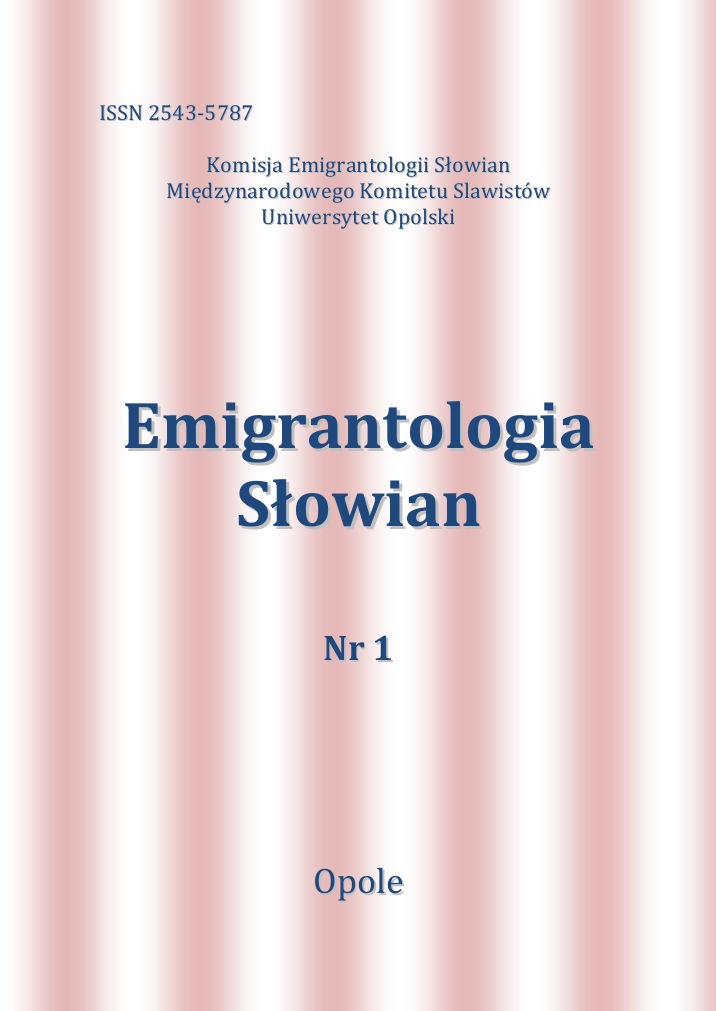
We kindly inform you that, as long as the subject affiliation of our 300.000+ articles is in progress, you might get unsufficient or no results on your third level or second level search. In this case, please broaden your search criteria.

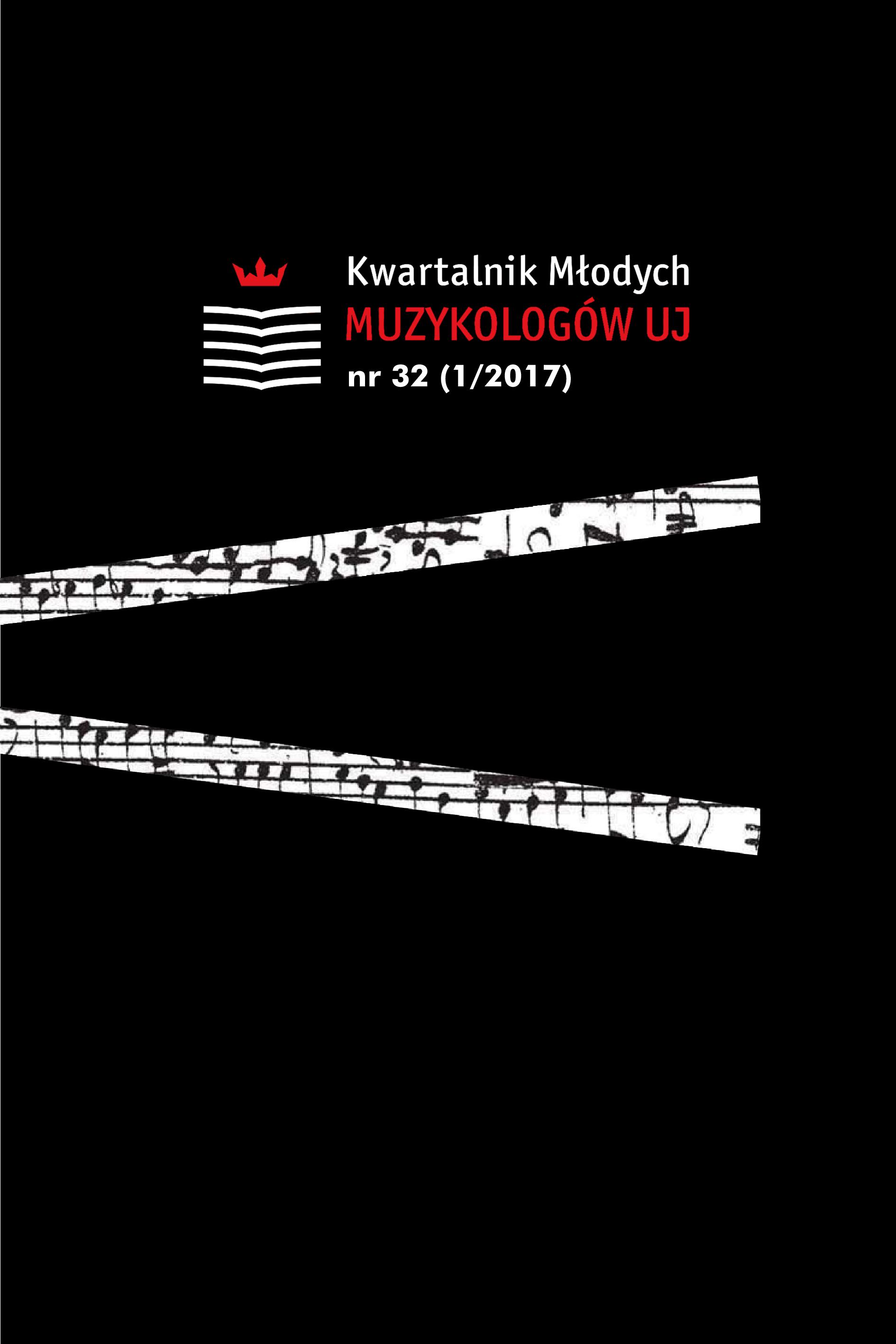
Discontinuum-continuum: the theory of composition by Julio Estrada. The Julio Estrada’s output is still the unexplored area, what creates the opportunity to study the phenomenon called discontinuum-continuum. During the last 36 years of the creative activity, Estrada has developed several aspects of the macro timbre that integrate several compounds of a composition. In his research, Estrada confronts two different situations in the compositional process: continuous transformation of the sound and chronographical method, using strictly defined recording process in order to receive three-dimensional movements of the sound in the topological order. As a result of existing these two situations, a musical work is impossible to be defined by one technique or musical style. Examination of the theory of composition called discontinuum-continuum allows one to understand a new methodology of musical creation that involves scientific research of the physical phenomenon of sound and introspection of the imagination of the sound.
More...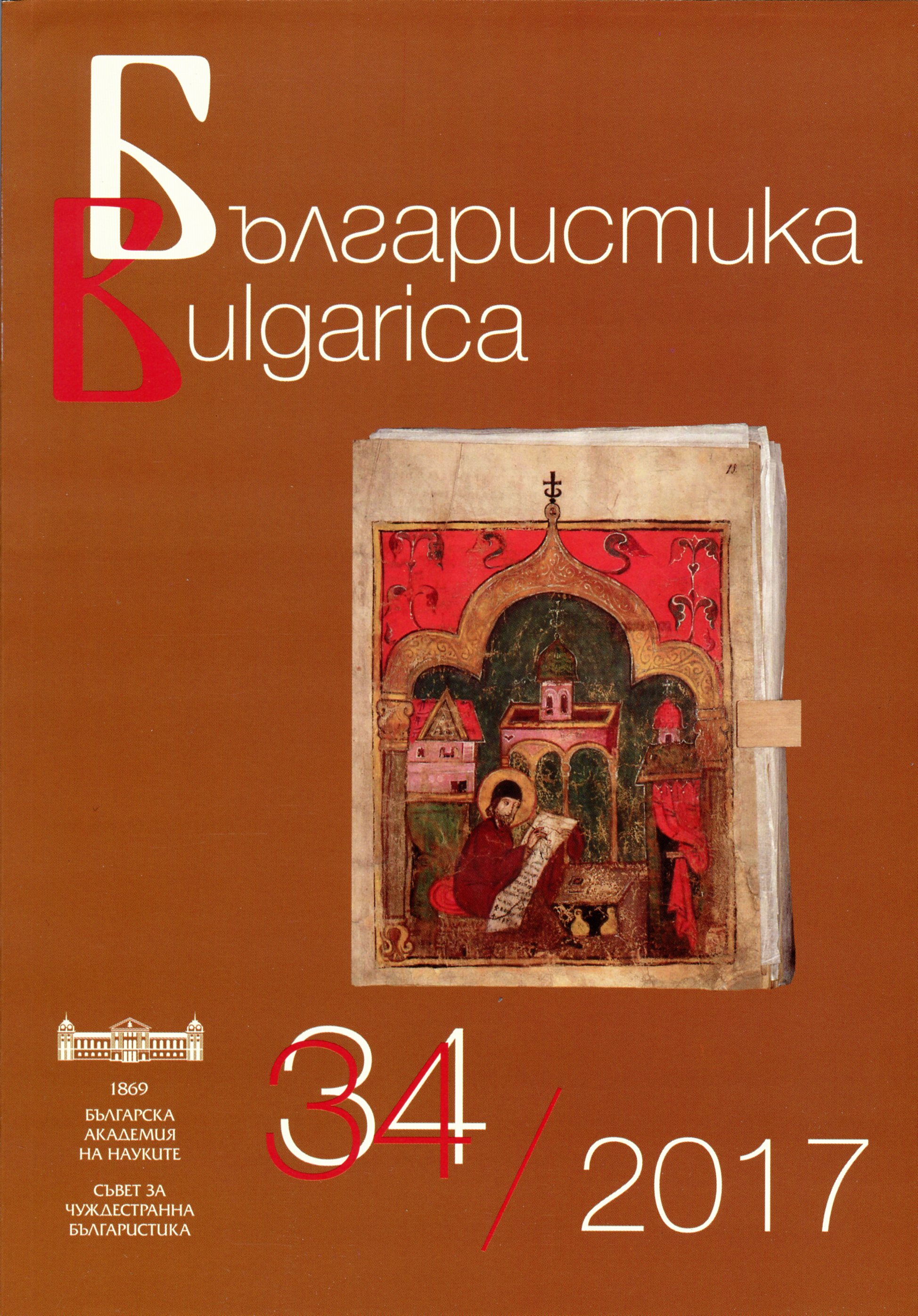
Selected bibliography in the field of Bulgarian Studies published in the current year
More...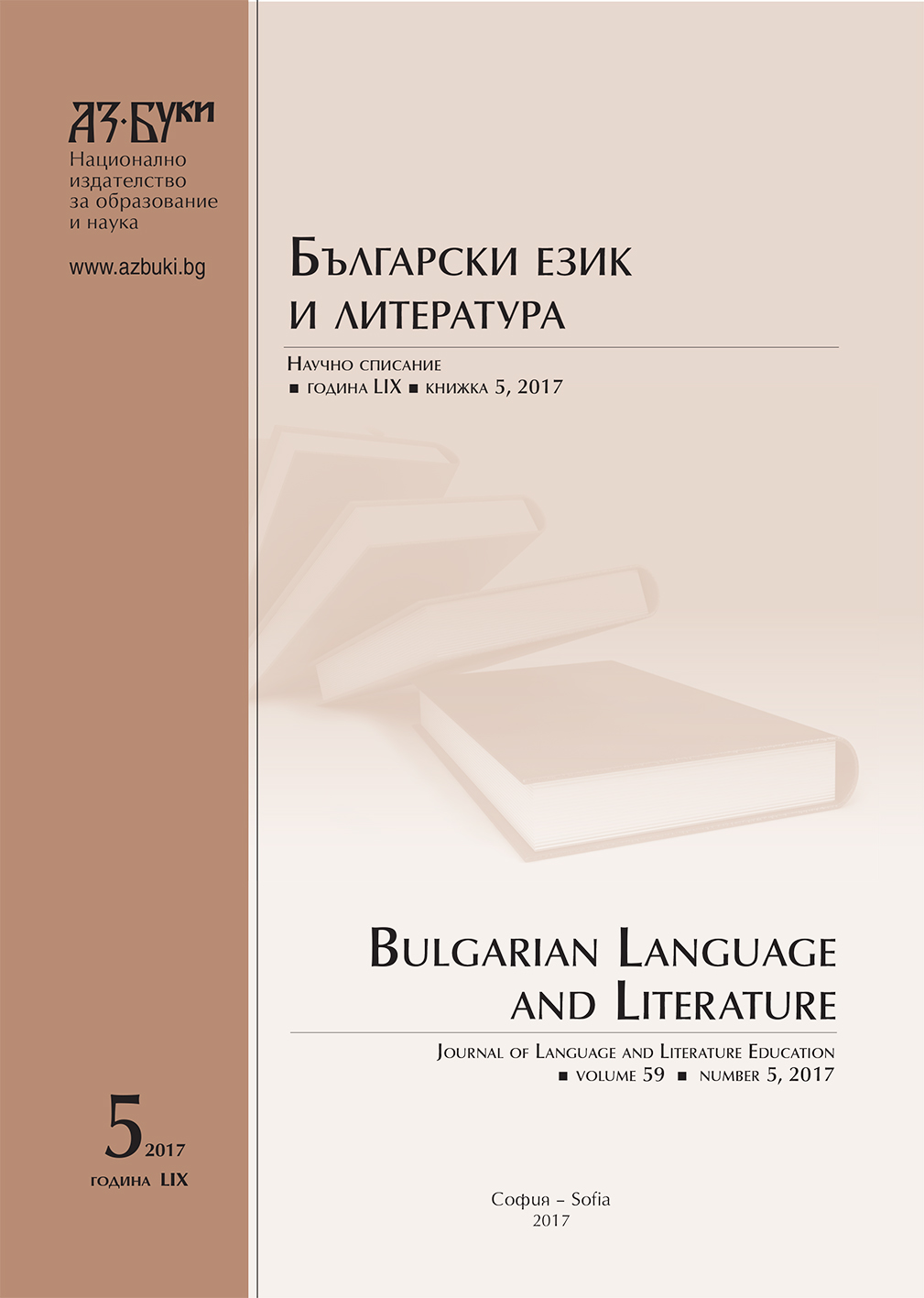
This article presents a possible model for teaching 9th grade Literature material related to the Bible and the Old Bulgarian literature by applying the knowledge that the students have acquired during the Information Technology classes. The demonstration of the student presentations about famous Bulgarian monasteries favors the formation of teamwork skills, the creative usage of the Internet resources and the improvement of the knowledge connected with the subjects studied in 9th grade.
More...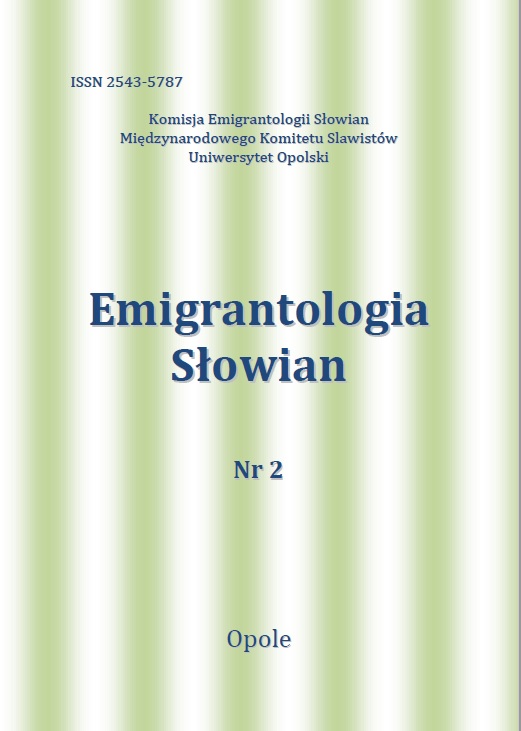
Conference report on an international scientific conference “Old Believers Abroad”, held in Toruń 19th-20th September 2016. The conference was devoted to various aspects of life of Old Believers’ communities outside Russia, as well as the problems of Old Believer emigration and general questions of Old Believerism.
More...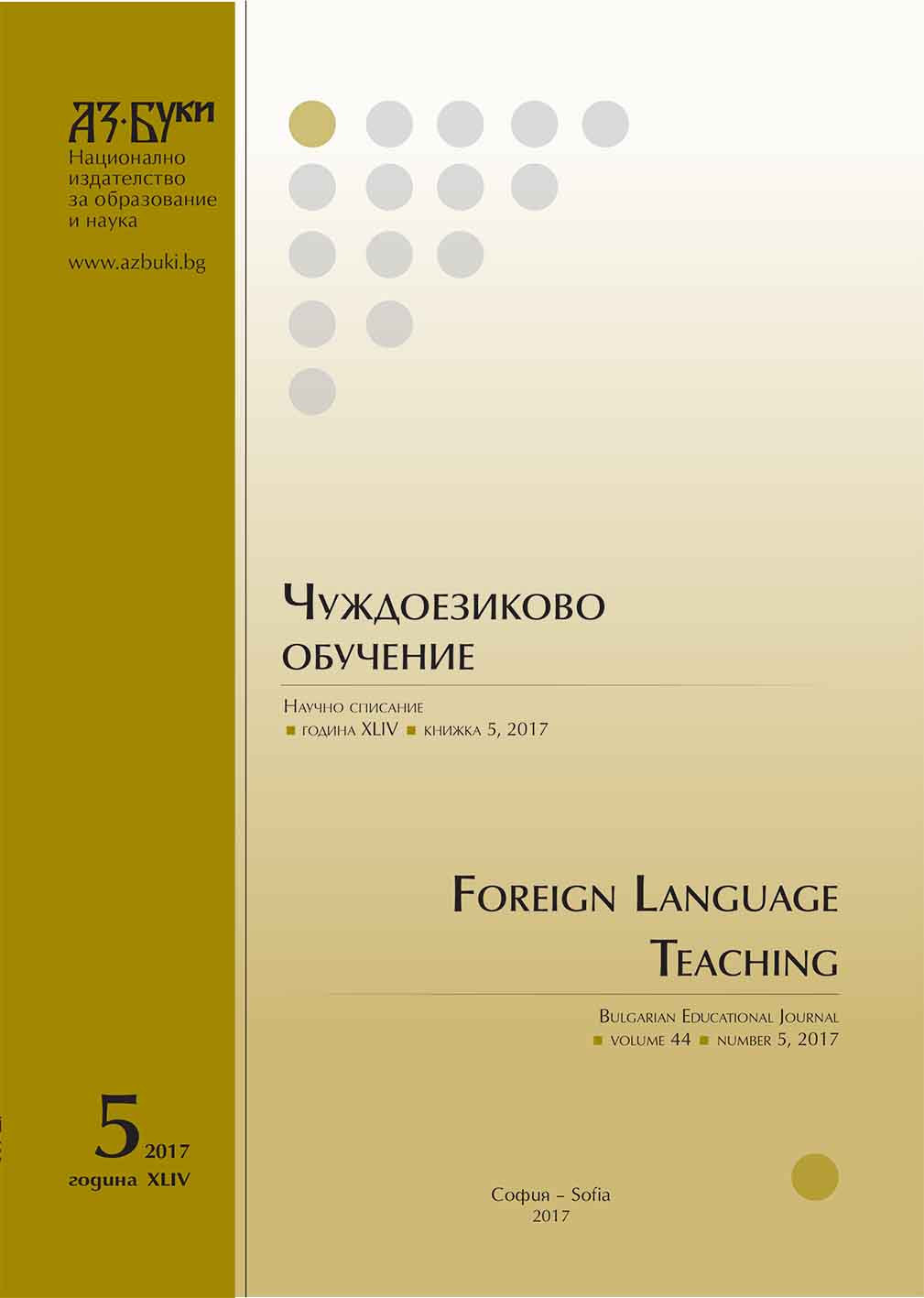
Conversation analysis is an interdisciplinary research programme assuming an innovative theoretical approach and unique methodology. The present article follows its origin in sociology in the 60’s and 70’s of the 20th century, its conceptual grounds and the factors of its formation and consequent development, its gradual and difficult confirmation and its broad application in the close humanities and even in natural sciences. This review outlines the points of contact between conversation analysis and its direct predecessor, ethnomethodology, situates conversation analysis in the field of discourse analysis and mentions its contribution to foreign language teaching.
More...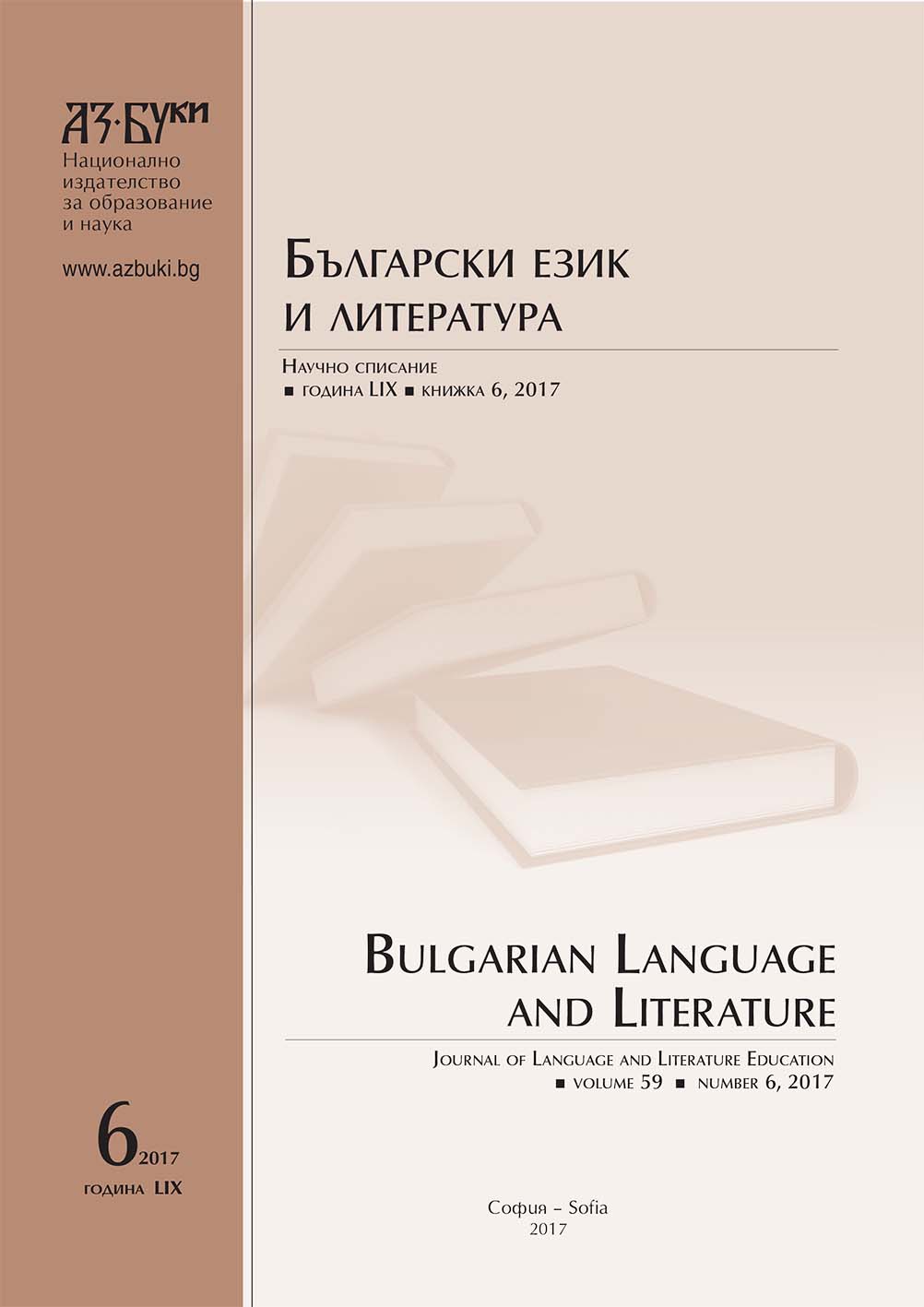
Writing is a main component in second language acquisition. Writing skills are basic and include creating texts, which are assessed acording to the following criteria: content, organization and cohesion, range, register, target language, accuracy of language. The writing task, which results are analysed in this article, is partially constrained by presenting foreign students with initial and final sentences. The students were instructed to write several sentences in between those two which, when taken all together, would form a good text.
More...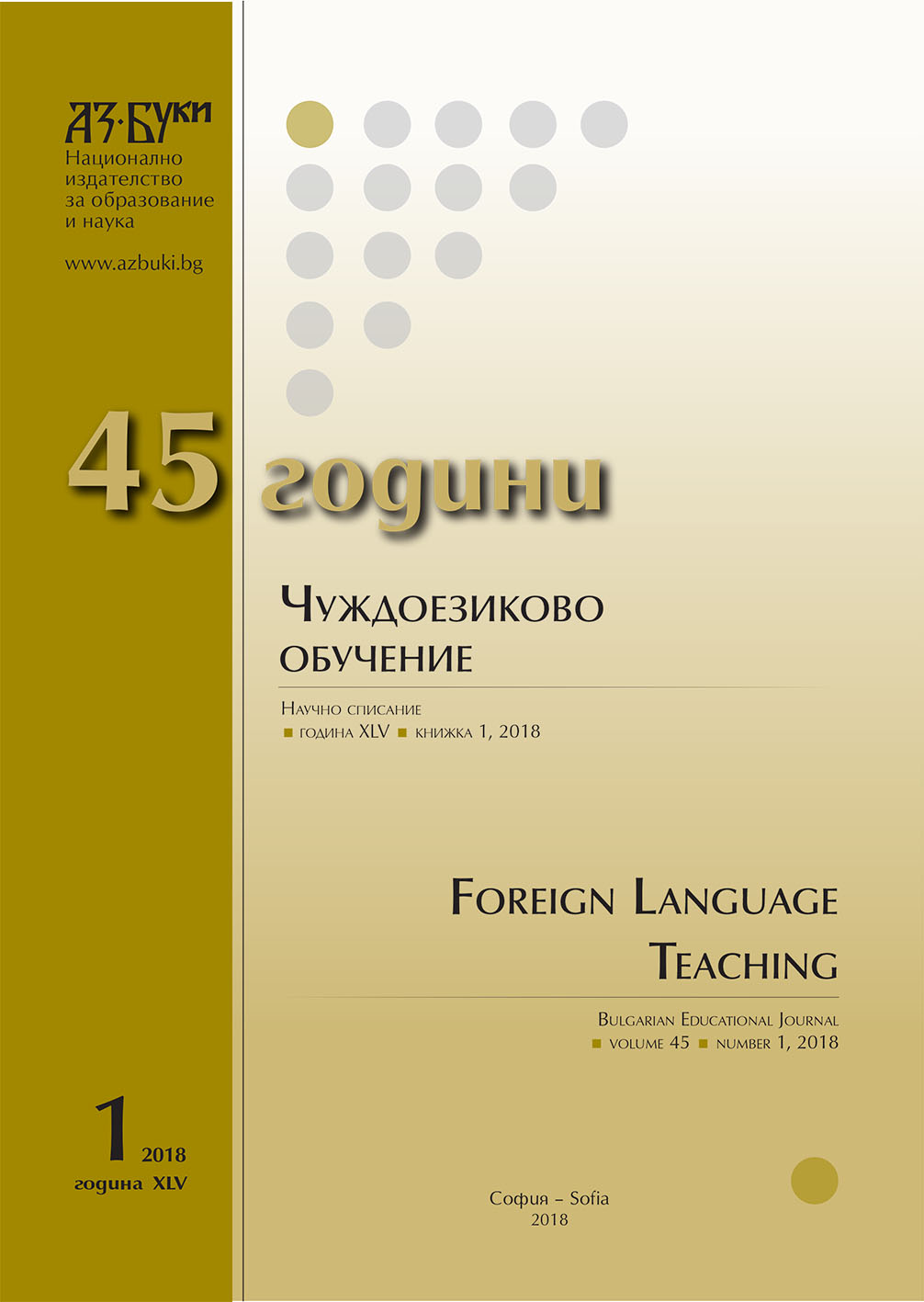
Conversation analysis, or talk-in-interaction, takes into account the sociallayer and the internal organization of the interactive episode with a focus on the procedural basis of everyday life. The research tradition distinguishes some crucial aspects of conversation such as: action, structure and intersubjectivity. Their essence and characteristics are defined leaning on an original methodology, applied to samples of oral verbal communication in ordinary situations, and envisages a detailed study of transcriptions of the excerpted text.
More...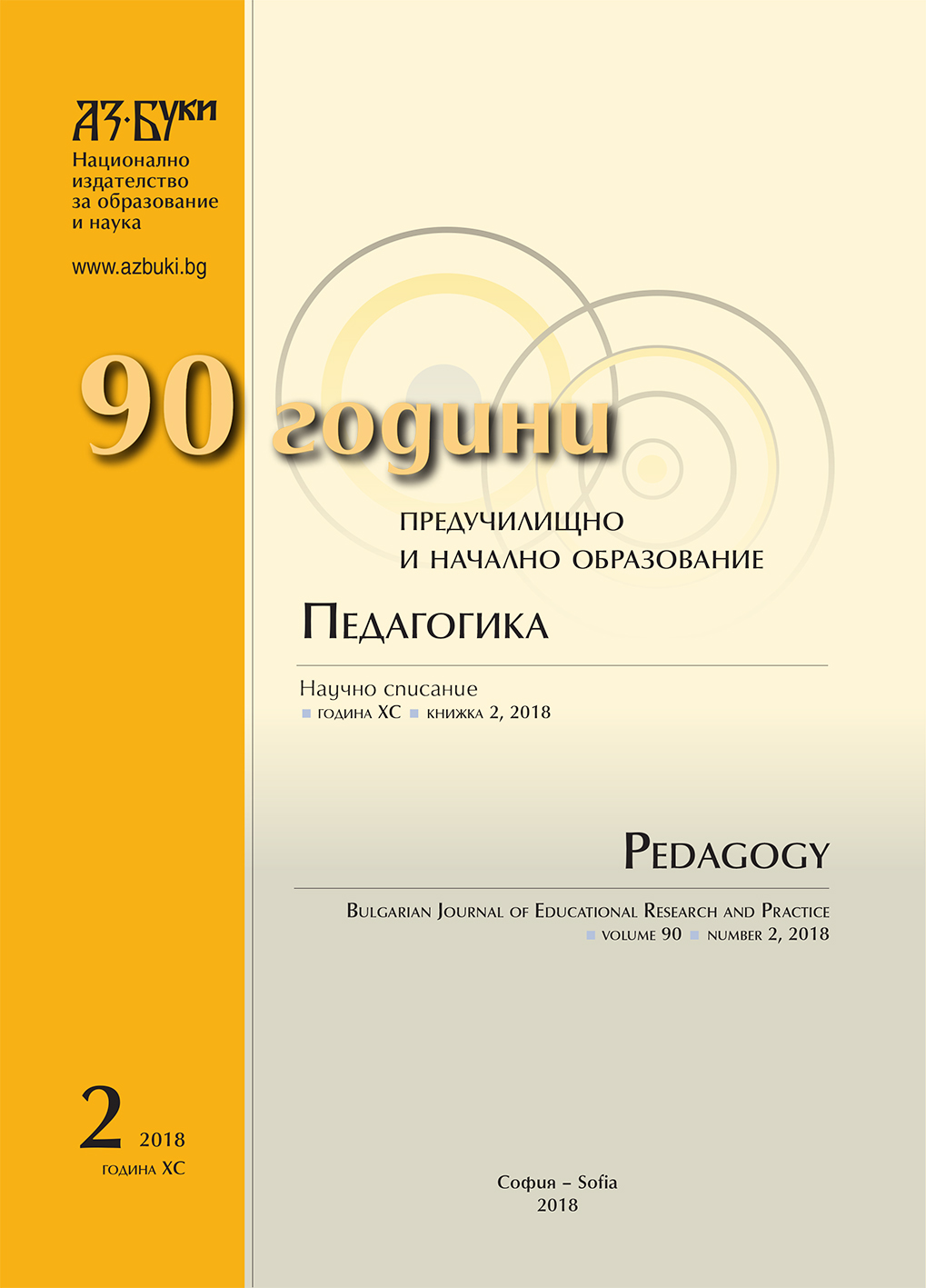
This article deals with the issues directly or indirectly connected to educating a child in a modern family. Some ethical issues are being discussed related to widely applied activities within the public space such as ones in the social media, intervention in fertility health treatments, pedagogical practices in nurseries and kindergartens accompanied by the author’s comments altogether with their long-term consequences on the most important individual amongst them – the child.
More...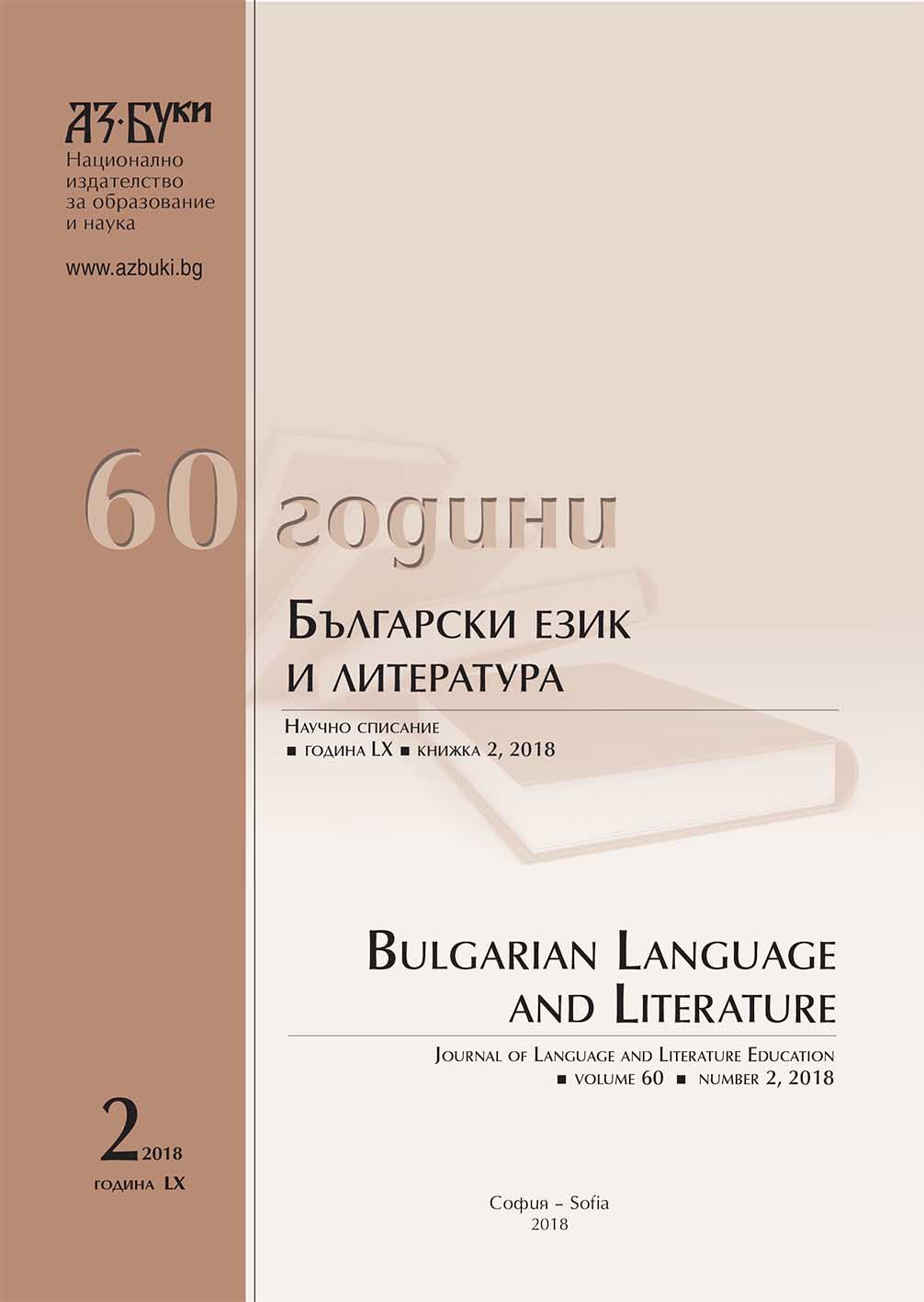
The article discusses the relationship between some peculiarities of the New Bulgarian literary language and the process of formation of the Bulgarian nation during the Renaissance. Characteristics such as piety to native language, movement to build a common and comprehensible for all literary language with modern norms, use of variant forms; a lack of a narrowly dialectic basis mark the pattern of forming of national literary language corresponds to such historical features as the lack of political autonomy, as well as the principles of egalitarianism and democratization, and a network model of social organization and functioning of public and cultural institutions.
More...
The Bulgarian dialectаl language today, due to changes of an extra-linguistic nature, is found both inside and outside the state borders of the Republic of Bulgaria in the three historical geographic areas: Moesia, Thrace and Macedonia. Due to the impossibility for Bulgaria to achieve its national reunification in the twentieth century and due to the imposed emigration of the population in the past after various wars, the Bulgarian language has a record number of attempts for writing-regional codifications - six, one of them being the Vardar-Macedonian one.
More...
The report presents the interactive approaches for the development of communicative competences by applying ICT and teamwork of training in Bulgarian language teaching in VIII grade. The proposed model is a lesson for the team create an email with the specific purpose and addressed.
More...
The new Bulgarian damascenes are important moment of the development of the literary Bulgarian language. The use of vernacular in the damascenes restores the relation between literary and spoken language and incorporates the living Bulgarian language enriched with literary vocabulary and means of expression. Thus, Bulgarian literature becomes part of the pan-European trend for democratization of written languages. The goal of this paper is to perform a comparative analysis of the 6th commandment from the enlightening speech on the Ten commandments from the Tihonravov damascene with part of the introduction from Slavonic Bulgarian History from Paisius of Hilendar. The analysis aims to track the diverse developments of the literary Bulgarian language. The study is based on comparing morphological and lexical particularities. The results indicate that the language of the Tihonravov damascene comes very close to the vernacular of the period and the present day vernacular, which confirms the hypothesis that the words used in the new Bulgarian damascenes are also the foundation for the new Bulgarian literary language.
More...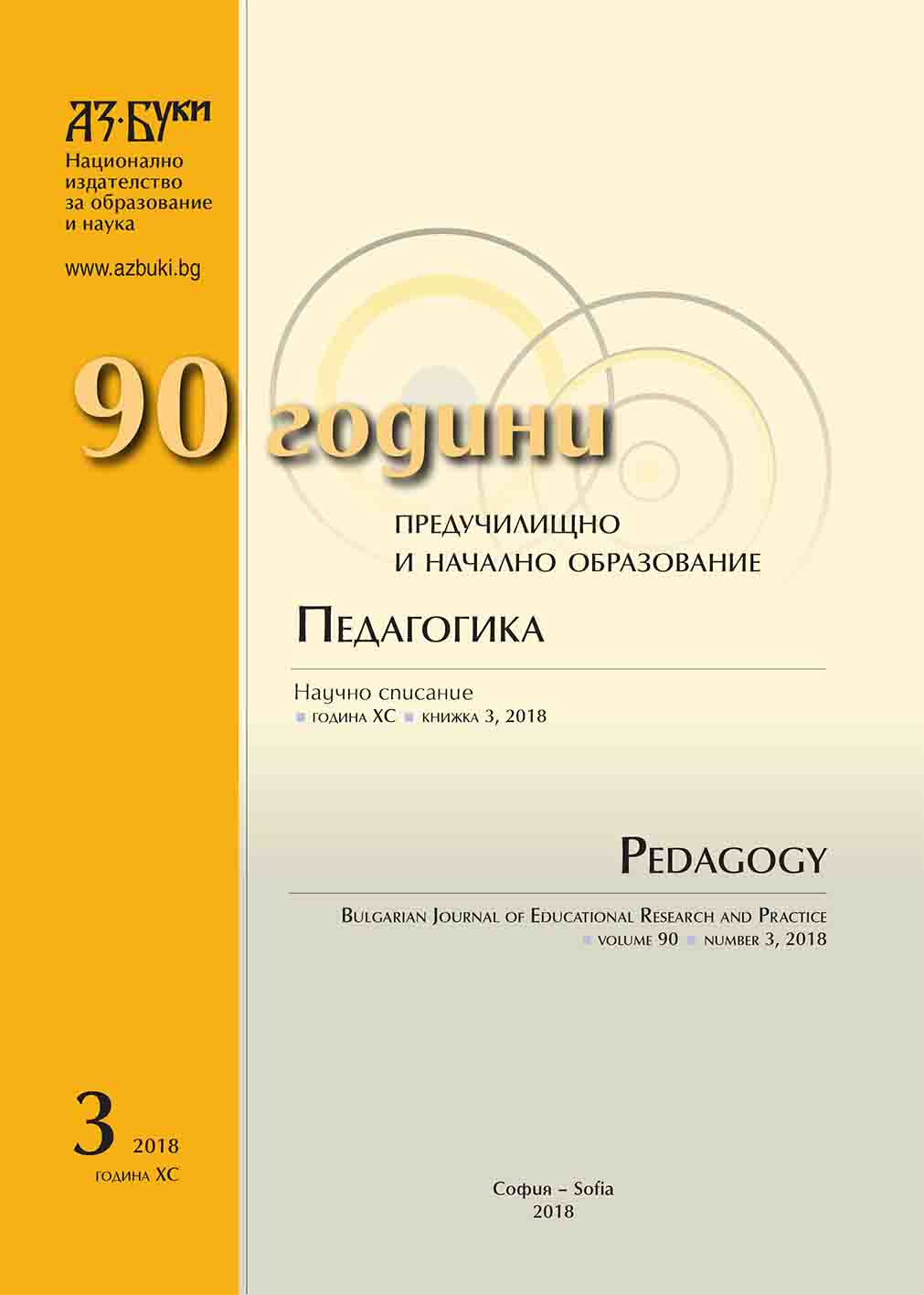
The article focuses on adult education and training and their transformations from the early 20th century to the present. Different challenges have been outlined that not only increase the sensitivity to the use of the different opportunities of the environment for education and training but also influence the understanding of adult learning. Based on the results of the survey, there are generalized features and modern development guidelines, educational models for adult learning and good practices from different countries – for example, second-chance training model, model of remedial training, model of workplace learning, model of cooperative learning, model of distance relationship tutor-learner; model of motivation training, model of VET training, model of training for general education.
More...
This article presents the historical steps of the birth and development of informal adult education in the Bulgarian lands. The opportunities for Bulgarians to learn at different historical stages and in the most recent times are outlined.
More...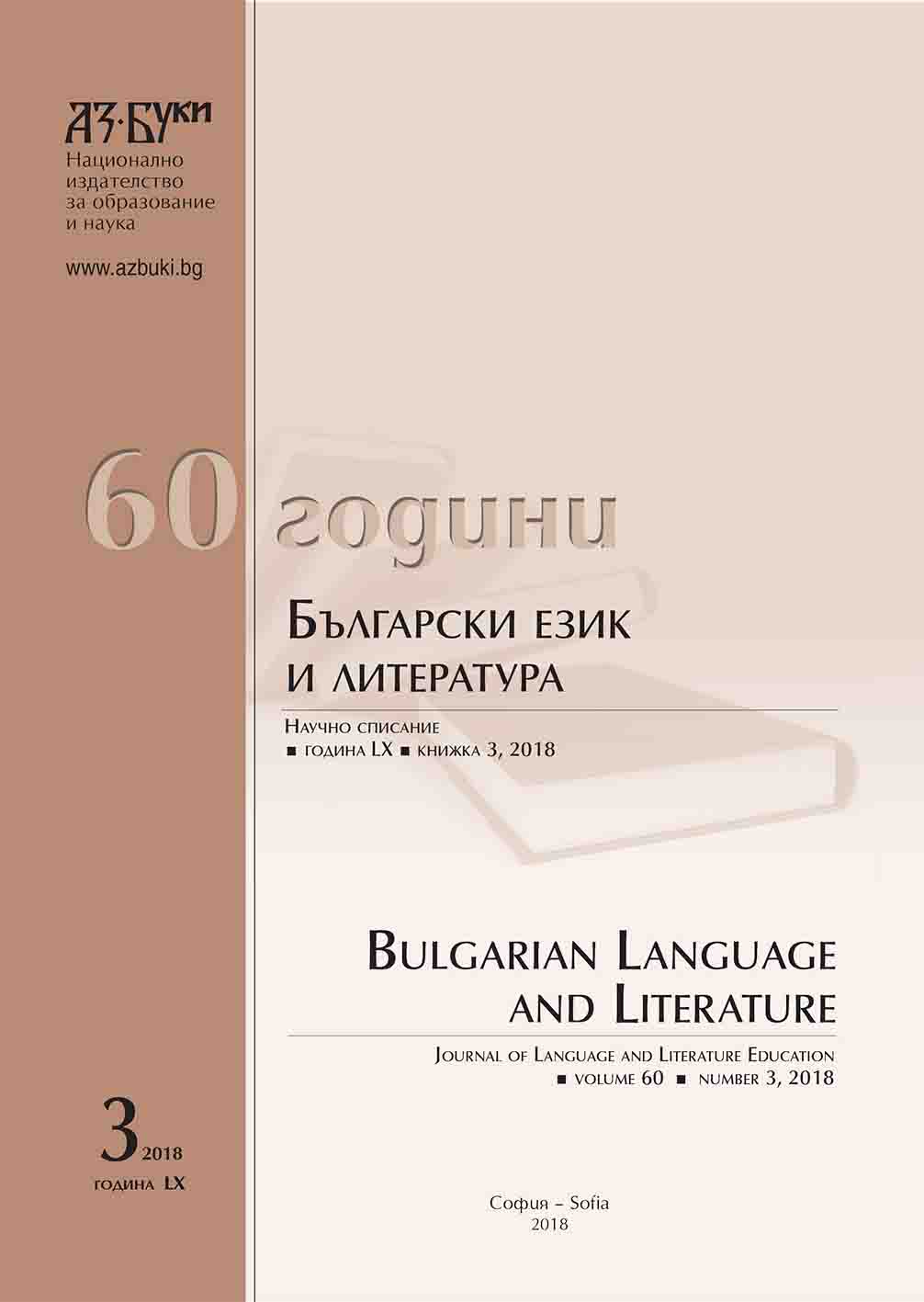
The article discusses issues related to one of the most significant aspects of the new curricula (since 2016) – the development of key competences as a primary educational objective. The concept of key competences, and in particular the key competency “communication in native language” (Bulgarian), has been considered in view of the opportunities that the curriculum content of the secondary schools offers for their achievement.
More...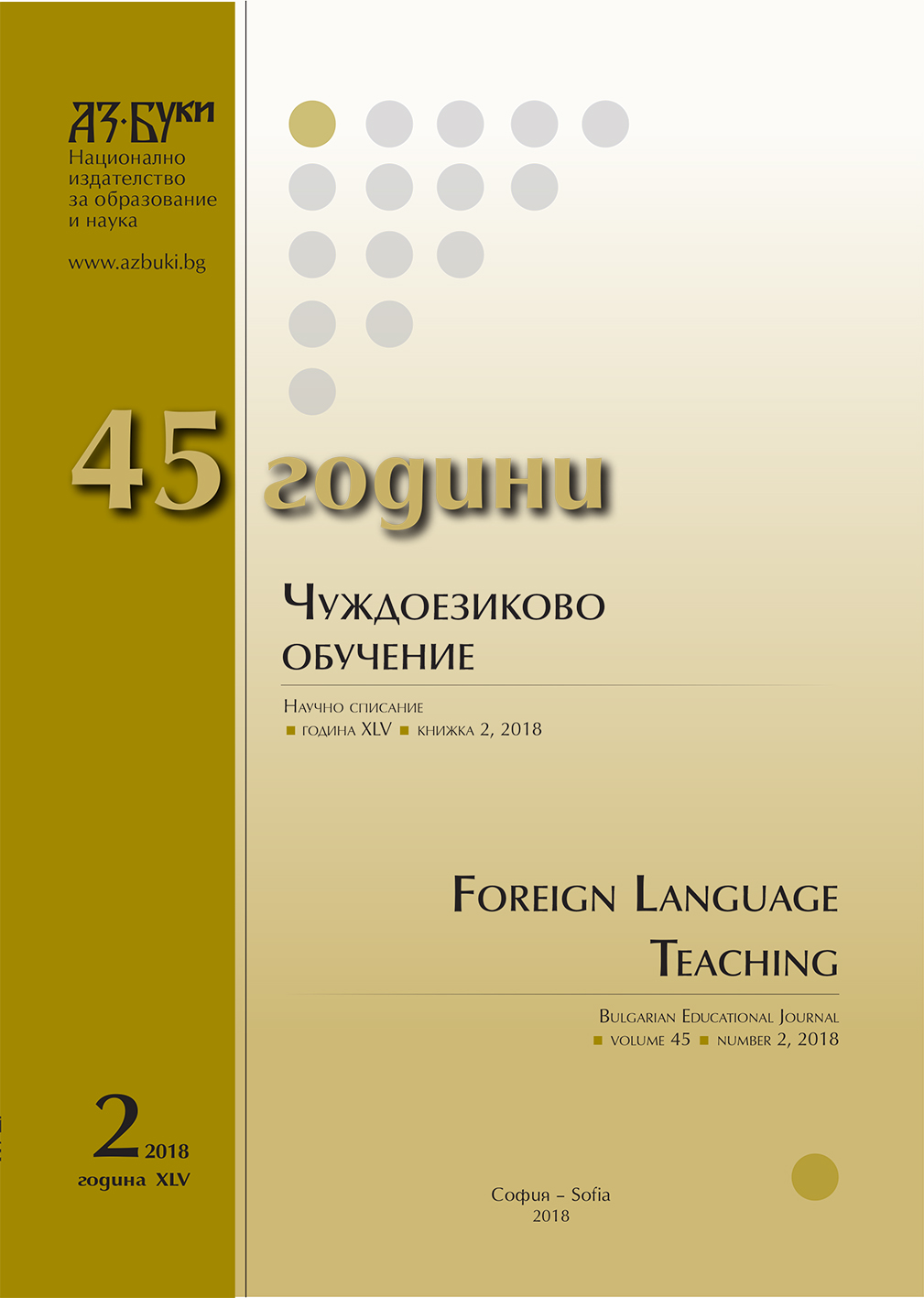
This paper deals with one of the most controversial phenomena of modern society – political correctness, manifested in language and behaviour. It focuses on the restrictions which it imposes on people’s social and cultural life, the bans that are enforced against a particular language and the possible prosecution in case of refusal to use politically correct language. It deals with facts that show arising dominance of minority groups over the majority.
More...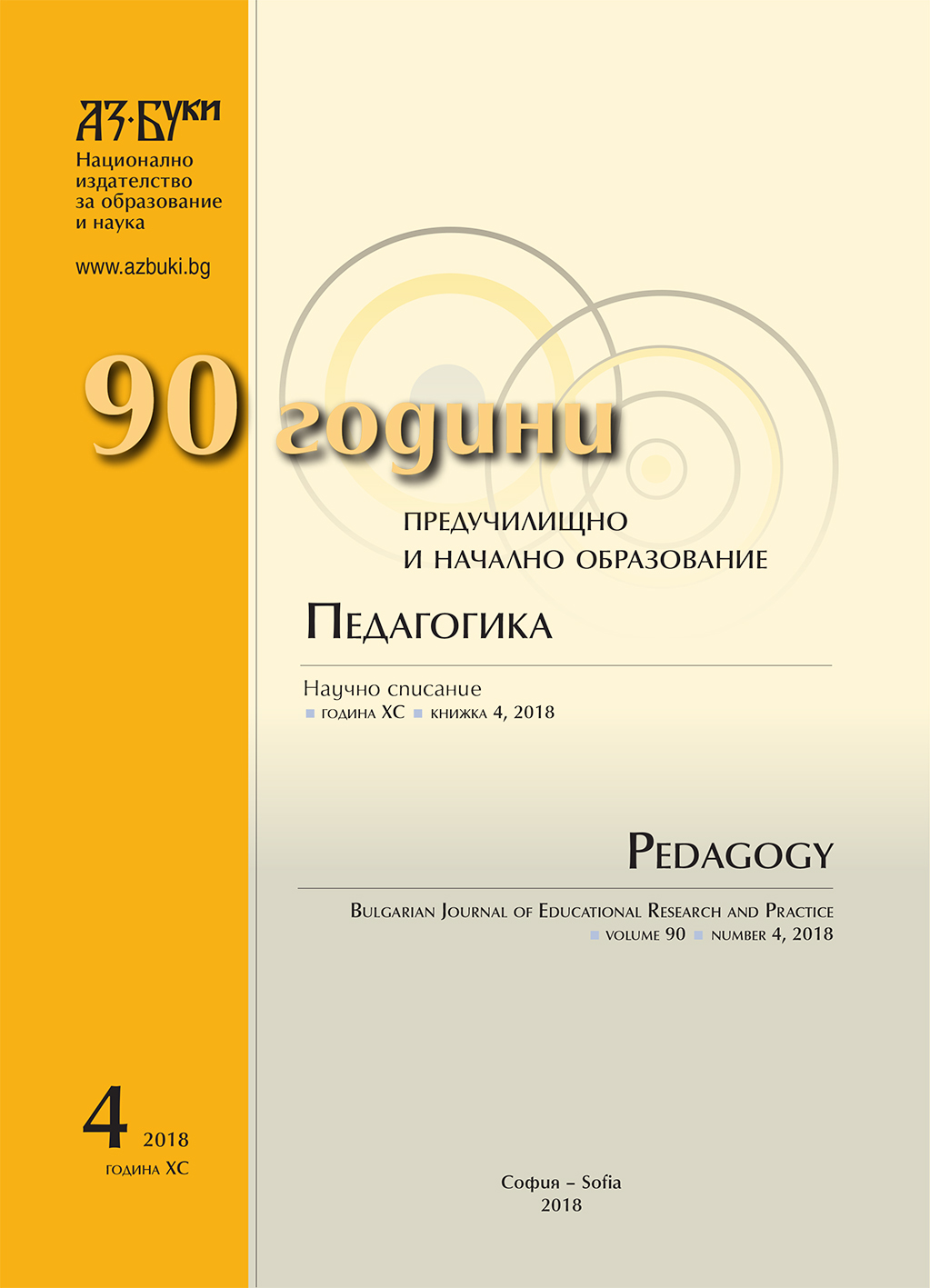
The paper outlines how the application of the Information and Communication Technologies (ICT) helps the students with Mild Intellectual Disabilities (MID) in the education field. For this research six different Greek educational software products have been introduced ТО twelve students in a Greek school
More...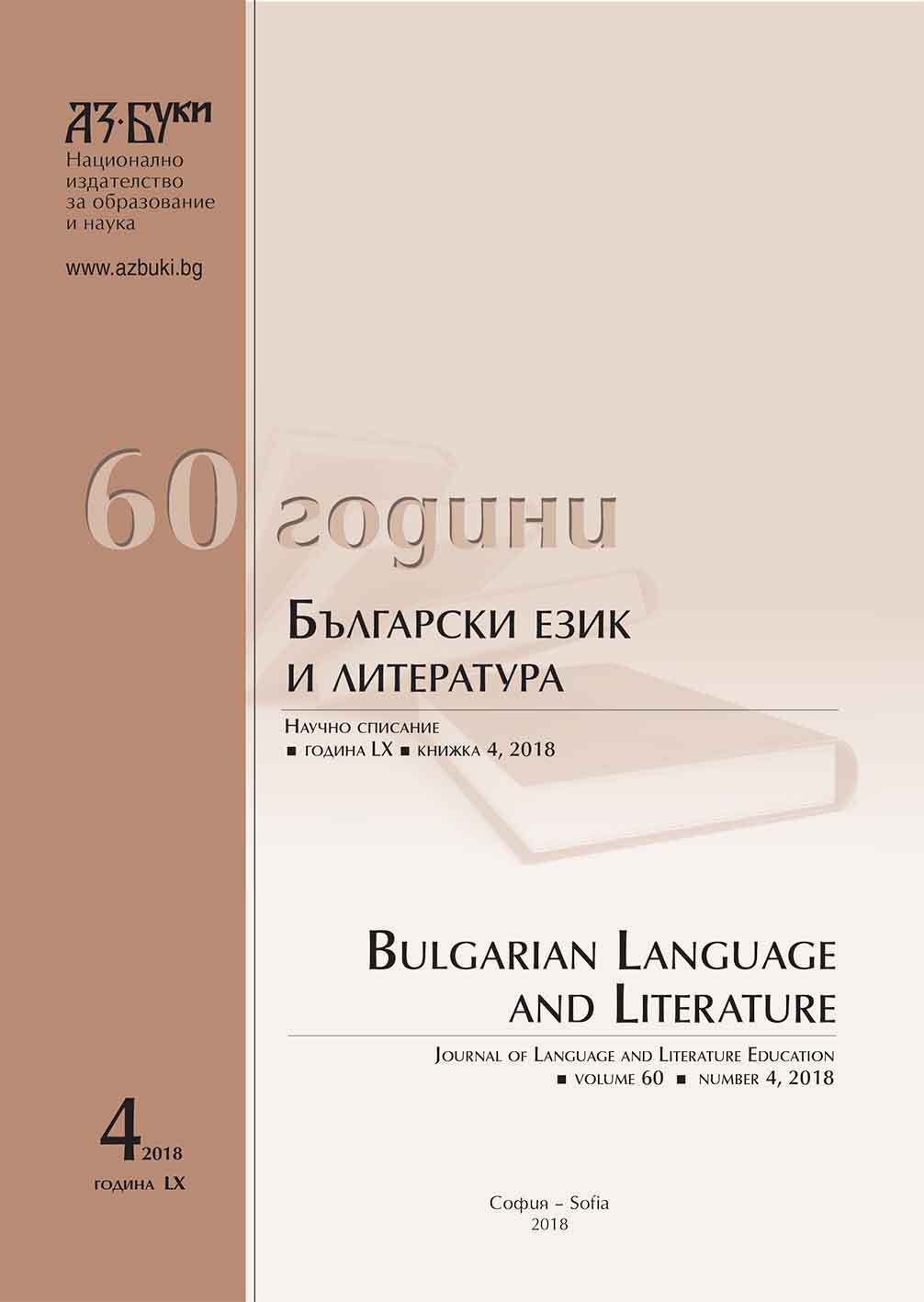
The paper is focused on the image of North America and the stereotypes about American reality that are represented and ironized in the short stories, written by the Bulgarian author Svetoslav Minkov and published in his books Shadow play (1928) Automatons (1932) and The lady with the X-Ray Eyes (1934)
More...
This article suggests an attempt to analyze some texts from the Bulgarian National Revival Periodic Press that interpret a „marvelous discovery“ - the typography. Its role and significance for the radical changes in cultural and literary communication, but also the resistances against it as something new, unknown and affecting someone‘s interests, are also examined. Through some texts by K. Fotinov, P. R. Slaveikov, N. Kazanakli is defended the concept of the typography as discovering new worlds, removing certain boundaries - spatial, temporal - and facilitating the touch to the foreign experience and its more comprehensive absorption, which are of particular importance in the conditions of the Bulgarian 19th century.
More...